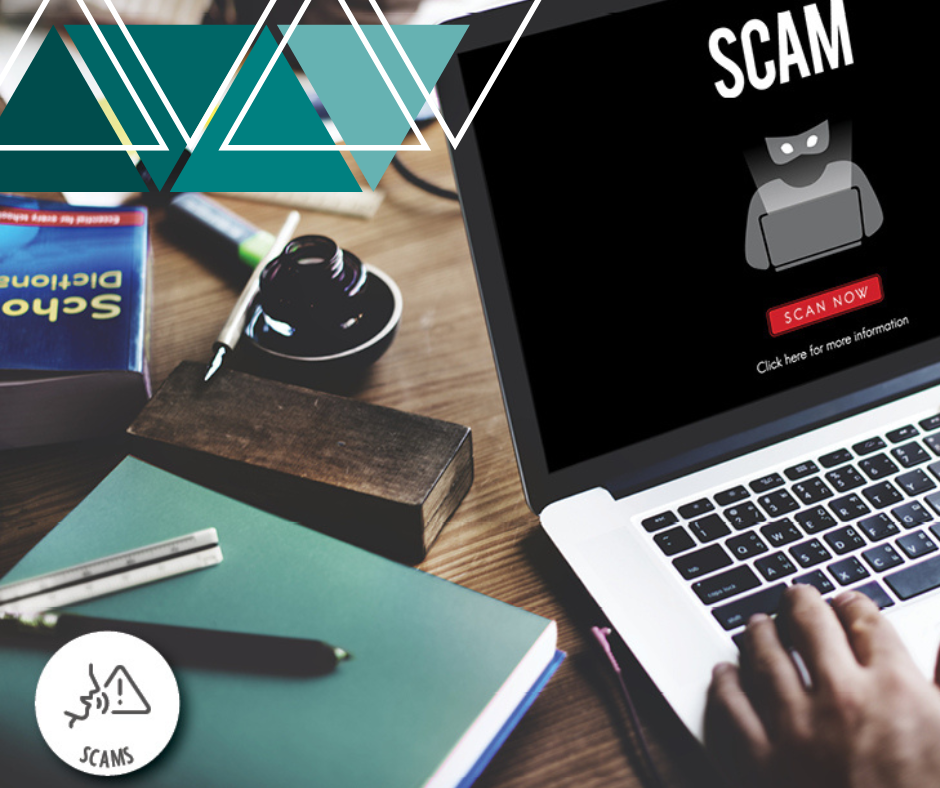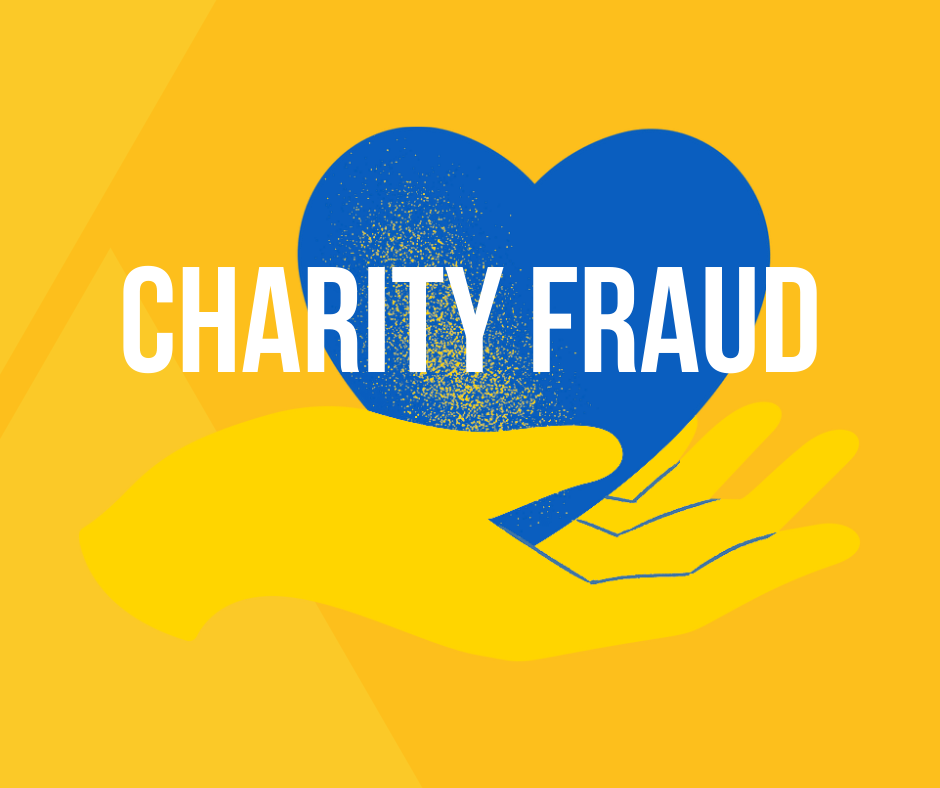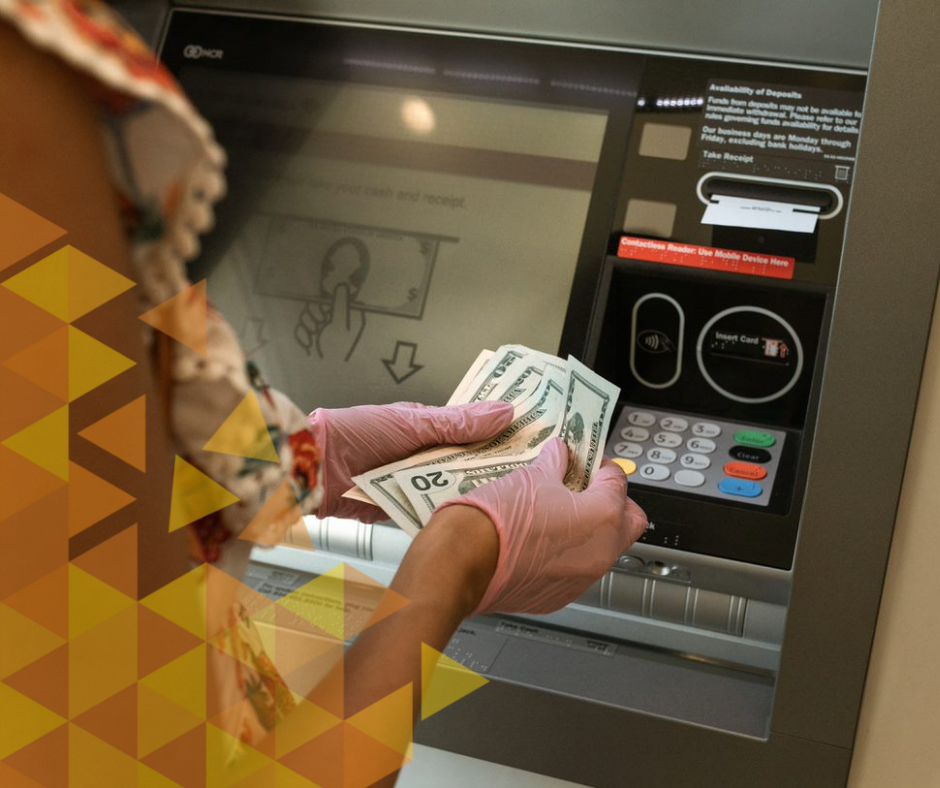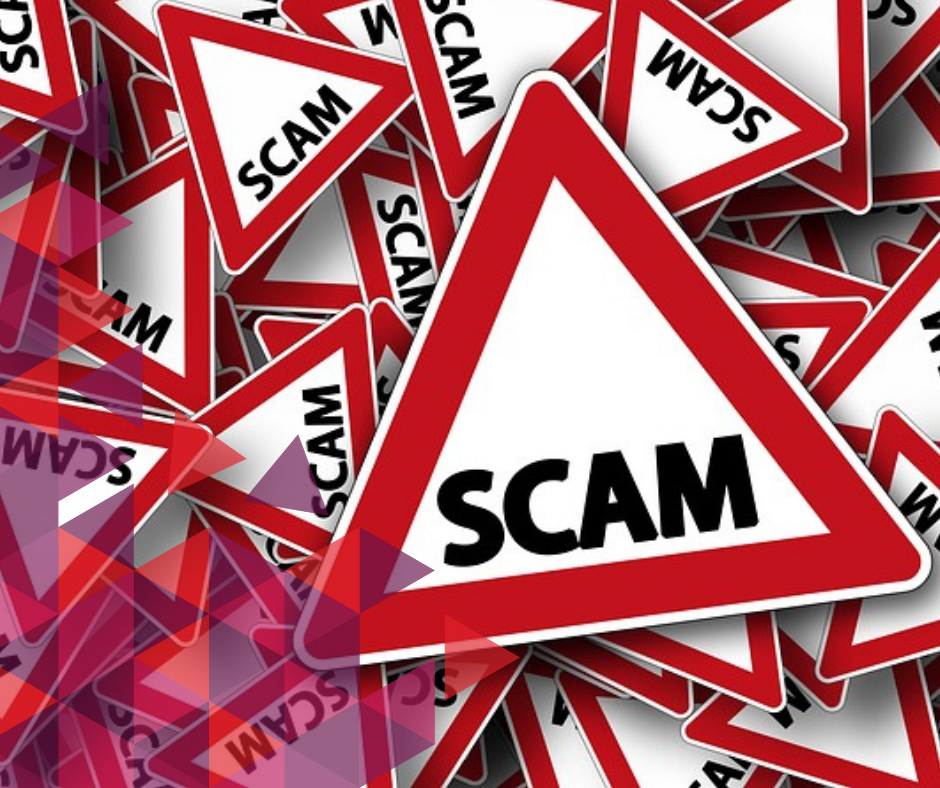|
Your grandson’s calling – and he’s in bigtime trouble! He’s been kidnapped and being held for ransom, so he needs you to wire over money ASAP.
Before you wire over anything, stop! You’re probably being scammed. Here’s what you need to know about emergency scams and how to protect yourself. How the scams play out In an emergency scam, a target gets a phone call, email or text message pretending to be a close relative. The caller will claim to have been caught in hot water, which can be anything: a kidnapping, an issue with the police, a car accident or getting stuck overseas with no money. The caller will then ask the target to send over money pronto, using a wire transfer or prepaid debit card. While emergency scams are commonly played out with a grandparent of an alleged caller, they can also target the parents, uncles, aunts and siblings of the “caller.” Unfortunately, if the target follows the caller’s directions by sending over money, these funds will go into the scammer’s pockets. Red flags Here are some signs that can alert you to the possibility of an emergency scam:
Protect yourself Follow these tips to help keep yourself safe from emergency scams:
Stay safe!
0 Comments
It’s your bank or credit union on the line asking for your account information – or is it? It may actually be a spoofing scam!
Let’s take a look at spoofing, how it works and red flags that can alert you to a possible spoofing scam. What is spoofing? Spoofing is the criminal act of disguising a communication from an unknown source to appear as if it’s being sent from a trusted and known contact. The ultimate goal of spoofing is to get the target to share their sensitive information and/or their money with the scammer. For example, a spoofer may pretend to represent a victim’s credit card company and lead them into sharing their account details. Types of spoofing Cybercriminals have a variety of ways to pull off their spoofing. Here are the more common forms: Email spoofingIn email spoofing, an attacker sends an email message that appears to be from a known or trusted source. The emails often include links to harmful websites or attachments that will infect the victim’s device. IP spoofingIn IP spoofing, an attacker tries to gain access to a system by sending messages via a bogus or spoofed ID address appearing to be from a recognized, trusted source, such as one on the same internal computer network. Caller ID spoofingHere, attackers make a phone call to a target that appears to be from a known caller. The scammer will often pose as the victim’s bank or credit union. The victim, believing they are speaking with a representative of their financial institution, will not hesitate to disclose their account information and passwords. Facial spoofing In this most recent form of spoofing, a scammer uses a photo or video of a target’s face to simulate their facial biometrics. This enables them to unlock accounts that can only be opened by facial recognition. Website spoofing In website spoofing, a scammer creates a bogus site that looks just like a reputable site the victim frequents. Attackers lure victims to this site to steal their login credentials and personal info. Text-message spoofingIn this scam, also known as smishing, a victim gets a text message on their personal device that appears to have been sent from a trusted source, such as the victim’s financial institution, place of work or doctor’s office. Deepfakes and spoofing Deepfakes is a relatively new and dangerous tool for spoofers. A deepfake is a fake image, video or audio clip that has been edited to appear authentic. For example, a scammer may create a deepfake video using an image and audio recording of a celebrity to make it appear as if they are telling you to open a link or support a specific cause. Protect yourself Spoofing is a formidable danger for consumers across the economic spectrum, but with the right tools and knowledge, you can avoid falling victim to these scams. Here’s how to protect yourself from a spoofing attack:
Red flags Look out for these red flags that can alert you to a possible spoofing attack:
Stay alert and stay safe! There’s little in life that’s more frustrating than a computer that won’t do its job. But sometimes, like your own private miracle, a message appears on your screen. It says: “Technical difficulties? Click here for assistance.”
Unfortunately, if you follow these instructions, you’ll probably fall directly into a scammer’s trap. Here’s what you need to know about technical support scams and how to prevent yourself from falling victim. How the scams play out In a tech support scam, a target will get an email, text message, pop-up or even a phone call allegedly from a computer technician who works for a well-known company. The “rep” will offer to help with any computer issues they may (or may not) have. They’ll direct the target to call a specific number or click on an embedded link, which will connect them to the “rep” who can supposedly help them. Once connected, the scammer will ask the victim to pay for the services before they’re rendered using a wire, prepaid gift card or cryptocurrency. Once the payment is made, the scammer disappears. Red flags of technical support scams
What you need to know about tech support
Protect yourself Don’t fall for a tech support scam! First, if you run into technical difficulties with your computer, don’t wait for a rep to contact you to offer assistance. Instead, directly reach out to a trusted company. Also, if you believe there may be a problem with your computer, update its security software and run a scan to identify any potential problems. Finally, never provide an unverified contact with access to your device. If you’ve been targeted If you believe you’ve been targeted by a tech support scam, here’s how to mitigate the damage. If you’ve given a scammer remote access to your computer, update your computer’s security software, then run a scan and delete anything that’s flagged as a problem. If you’ve shared your login credentials with a scammer, change all your passwords. You’ll also want to report the scam to the FTC. Stay safe! In today’s world, where many people spend hours of each day browsing the internet, staying safe online is paramount. The web is rife with scammers employing sophisticated tactics to get at your money and information. Fortunately, with protective measures, you can easily avoid unsafe websites.
Here are six ways to tell if a website is safe. Look for an SSL certificate Secure websites have an SSL, or a Secure Sockets Layer. An SSL is a digital certificate that verifies a website is authentic and will automatically encrypt all personal information and financial data. There are two primary indicators of an SSL, and both are clearly visible in the site’s URL:
Evaluate the URL structure Review the URL carefully. Are there misspelled words? Does the URL mimic a well-known site? Scammers often lure victims by creating bogus sites that look like they represent well-known companies. However, careful scrutiny of the URL will reveal basic spelling errors that give the scam away. Look for the company’s contact info Legitimate companies are eager to have you connect with them for any reason. They’ll generally display their contact info on their home page or provide a link for easy access. Scammers, on the other hand, try to keep themselves as invisible as possible. You likely won’t find any tabs that say “Contact Us” or “About Us” on their website. Check the spelling and graphics Authentic companies will take the necessary steps to make a professional impression on site visitors. Scammers, on the other hand, will not. Use their carelessness to your advantage by looking out for spelling mistakes and typos throughout the site. You can also be on the lookout for cheap design elements, including recycled images and logos that are poorly created. Each of these clues can signify a scammy website. Heed your device’s security warnings If you put a site’s address into your computer, and a warning pop up alerting you that the site you’re attempting to access is unsafe, don’t ignore it. Unless you’re absolutely sure the site is secure despite the warning, it’s best to not advance to the site. Opt out of sites that flood you with pop-ups Scammy websites will try luring you into downloading malware through pop-ups and embedded links. Sometimes, the links will be used to generate ad revenue through clicks. Whatever the intent, it’s important to know that reputable sites will not flood your screen with pop-ups and random links for you to click. If you encounter a site like this, you’re likely looking at a scam. Exit the site, close your browser and have your security system run a scan on your device. Stay alert online and stay safe! Buying a home is a long and complicated process, and scammers want to complicate things even more to capitalize on the confusion. Mortgage scams are growing increasingly prevalent and can be difficult to detect. Here’s what you need to know about these scams and how to prevent yourself from becoming a victim.
What’s a mortgage scam? Mortgage scams are designed to deceive individuals who are involved in the mortgage process, including homebuyers, lenders and existing homeowners as they seek refinancing. These scams exploit the complexity of mortgage transactions, possible inexperience and the emotional investment people tend to have in their homes. Types of mortgage scams and how they play out There are several variations of mortgage scams:
Follow these tips to avoid falling victim to a mortgage scam:
When Midge Laurin, of Chicago, Illinois, mailed out a $30 check, she had no idea it would be intercepted by a scammer and written out to someone else to the tune of $9,475. Check-washing scams like this are on the rise, and can leave victims struggling to reclaim their lost funds for months. Here’s what you need to know about these scams and how to avoid them. How the scams play out In a check-washing scam, the target places a check in the mail, and it is then stolen by scammers who nick envelopes from private mailboxes or lift them out of public mailboxes using “fishing rods” made of strings attached to a sticky substance. With check in hand, the scammer uses ordinary household chemicals, like acetone or bleach, to erase the ink off the stolen checks. Finally, they’ll rewrite the numbers and/or the payee before depositing the checks into their own accounts. Sometimes, the scammer will take the ruse one step further by using the checking account details found on the check to commit further crimes against the check-writer. This may include producing counterfeit checks in the victim’s name, as well as fake IDs, driver’s licenses and passports. The victim may only learn about these crimes when they begin receiving overdraft notices or are informed that their ID is no longer valid. Protect yourself Unfortunately, check washing may not be discovered for weeks, or even months after its occurrence. Sometimes, the victim will only learn of the ruse when they review their monthly checking account statement and see that the check amount and/or payee has been altered. Or, they may only find out about it when the intended recipient reaches out to let the check-writer know they still have not received the check. The scam’s discovery is more likely to be delayed when the scammers have not modified any information on the check and have simply stolen and deposited a check made out to “cash”. In addition, many financial institutions do not offer complete protection on fraud that is not reported within a few days of its occurrence. Some offer partial protection for up to 60 days. Ingersoll-Rand FCU Law enforcement agencies on local and federal levels, including the U.S. Postal Inspection Service and the FBI, have task forces to help stop check washing. They offer the following strategies for keeping your checks and your information safe from scams:
Check washing can wreak havoc on a victim’s finances before they even know it’s occurred. Follow the tips outlined here to keep your checks safe. TikTok Inspo: Have you sidestepped a check-washing scam? Tell us your story in a 15-second video. Scammers are always looking for new ways to deceive people to make a quick buck, and home improvements are a common target. As the weather warms and home improvement projects start taking center stage, contractor scams start blossoming like weeds after a spring rain.
No one wants to be taken advantage of, and you’re probably no different. To help you know what to look out for in these scams, let’s take a look at some of the most common home improvement scams and how to avoid them. The door-to-door scam In a door-to-door scam, scammers show up at a target’s doorstep, claiming to be contractors or representatives of a home improvement company. They may offer to do work for a low price or even for free, alleging that they are in the neighborhood and have extra materials, so they’re happy to “do you a favor.” Cheap or free labor sounds amazing, doesn’t it? And it is – until you realize the “contractor” is not licensed or insured, uses subpar materials and does shoddy work. They may also try to get you to sign a contract on the spot, not leaving you any time to do proper research or get competing quotes. In the worst variation of this scam, the alleged contractor will ask to be paid upfront in full, claiming they need the money to buy materials or cover other expenses. However, once they have your money, they disappear without doing any work. Stay safe: Never hire a contractor on the spot. Always ask for proof of license and insurance as well as references from previous clients. Also, never pay for a project in full before it’s completed. The high-pressure sales scam Some irreputable home improvement companies use high-pressure sales tactics to get you to sign a contract. They may offer a special deal that is only available for a limited time or claim they can only do the work if you sign a contract right away. Unfortunately, though, these tactics are only a ploy to pressure you into making a decision before you are ready. They may also hide additional fees or charges in the contract, or promise things that they cannot deliver. Stay safe: Never rush to hire a contractor. Don’t be swayed by limited-time offers, and always carefully read the contract before signing. The “as seen on TV” scam In this home improvement scam, an alleged contractor tricks you into thinking a product or service is endorsed by a reputable source. They may claim that their product or service has been featured on a popular TV show or website, or that it has been used by celebrities. However, these claims are completely false or highly exaggerated. The product or service may not live up to its promises, or it may be overpriced compared to similar products or services. Stay safe: Always do your research and read reviews from other customers on multiple platforms before hiring a contractor. Don’t assume celebrity endorsements or claims of popularity are legit without verifying them first. The insurance scam In this variation, scammers claim they can help you get a new roof or another home improvement project covered by your insurance company, despite the fact that there was no covered event making the project necessary. This, of course, is insurance fraud, which is illegal and can lead to fines and jail time. Stay safe: Always check with your insurance company before starting any home improvement project. Make sure the project is covered by your policy and that you understand the deductible and other terms of your policy. Home improvement projects are exciting; getting scammed while renovating your home is not. Follow these tips to protect yourself from falling victim to a home improvement scam. Stay safe! TikTok Inspo: Can you scam us? Try impersonating a home improvement scammer using one of the ruses described above. Inheritance scams have been around forever, and they’ve only gotten more prevalent with the advent of online communication. Unfortunately, if the victim falls for the scam, they’ll only inherit the loss of funds, possible identity theft and more.
Here’s what you need to know about inheritance scams and how to protect yourself. How the scam plays out In an inheritance scam, a target will receive an email or letter, allegedly from a lawyer, informing them that they’ve inherited a large sum of money from a recently departed relative. The exact amount of money referenced in the scam will vary, but it can be as high as several million dollars. The target will be asked to pay an upfront fee for the ability to claim their inheritance. The scammer claims this money will help cover the cost of legal fees, taxes and other expenses that are related to the transfer of the inheritance. Unfortunately, if the target agrees to pay the “processing fee,” they’ll never see this money again – and they certainly won’t see the inheritance they’ve been promised. In another version of the inheritance scam, the target is asked to share personal information, including their checking account details, so the inheritance can be transferred to their financial institution of choice. Of course, the scammer has no interest in sharing any funds with the victim, and will instead use the victim’s personal information to empty their accounts and/or steal their identity. Scammers use several ploys to make their ruses appear authentic. In both versions of the scam, the victim will be instructed not to share the news of their good fortune with anyone. This stops the victim from reaching out to another family member to question the authenticity of the inheritance. In addition, the email or letter informing the victim they’ve inherited a large sum of money will often include personal details about the victim’s life, such as their home address, names of their relatives and more. All of this information can generally be scraped off the internet and/or other public sources. This, too, can lead the victim into believing the missive is legit. Red flags Protect yourself from falling victim to an inheritance scam by looking out for these red flags:
If you believe you’ve been targeted by an inheritance scam, take these steps to protect your money and your information, as well as to help law enforcement agencies catch the scammers:
Your Turn: Have you been targeted by an inheritance scam? Tell us about it in the comments. With so many schools now offering online learning options, college degree scams are more difficult to spot. Unfortunately, falling prey to one of these scams can mean losing out on valuable time and money, all while believing you’re moving ahead in securing your degree. Here’s what you need to know about college degree scams.
What’s a college degree scam? A college degree scam can take the form of a diploma mill, in which an alleged school will advertise heavily, promising a super-quick degree for almost no work. There are no classes, or very few of them, and there’s no need to take any exams or interact with a professor to earn your degree. Just pay the fee, fill out some forms and the degree is yours. The only catch? The degree is bogus, and no graduate school or reputable employer will honor it. In another variation of this scam, an accreditation mill will provide higher education accreditation than a diploma mill for a similar level of minimal effort. Unfortunately, the accreditation is illegitimate, as the “school” is not recognized by the U.S. Department of Education (USDE) or the Council on Higher Education Accreditation (CHEA). In yet another iteration, an alleged college will offer its “students” a degree for work experience alone. Of course, the degree is not worth the paper it’s printed on. Red flags When researching potential college choices online, look out for these red flags of bogus schools and degrees:
How can I verify if my degree program is legit? Is all this talk of illegitimate degree programs and colleges making you panic about your own school? No worries; you can easily check if your college is legit. Just hold it up against this checklist:
If you’ve been targeted If you believe you’ve gotten caught in a college scam, take immediate steps to mitigate the damage. First, report the scam to the FTC. Leave the program and be sure to mark any emails from the school as spam. If you’ve shared credit card or checking account information with the scammers, you may need to take additional steps to prevent further charges, like closing the associated accounts. Finally, let your friends know about what happened so they know to also be alert. Don’t get outsmarted by a college scam! Stay alert and stay safe. Your Turn: Have you been targeted by a college scam? Tell us about it in the comments. Charity Fraud is nothing new. Every time a tragedy strikes, scammers take advantage of those who try to help. With war breaking out in the Ukraine, a new wave of Charity Scams are washing over those with big hearts.
How Charity Fraud plays out: Scammers will approach you in a manner of ways, through emails, social media posts, crowdfunding platforms, phone calls and more. These fraudsters will pull on your heart strings, asking you to donate to their charity, often pressuring you to donate right away. They may ask you for cash, wire transfer, or even card numbers. How do you spot the scams?
It’s tax season, and while that may mean you’re drowning in forms and paperwork, for scammers it means millions of taxpayers they can potentially dupe out of refunds or scare into making irrational moves. Here’s what you need to know about tax return scams and how to avoid them.
How the scams play out In a tax return scam, a fraudster steals a taxpayer’s personal information and files a fake tax return on their behalf. The scammer will direct the refund to be deposited into the taxpayer’s checking account. After the refund is deposited, the scammer will call the victim, impersonating the IRS and claiming the refund was mistakenly inflated. They’ll instruct the victim to return the alleged extra funds via gift card or wire transfer. Of course, this money will go directly into the scammer’s pockets. In another variation of a tax return scam, a fraudster steals a taxpayer’s personal information and files a fake tax return on their behalf, as described in the first scenario. However, instead of directing the refund to be deposited into the victim’s account, the scammer has the funds deposited into their own account. When the taxpayer tries to file a legitimate return, the IRS will inform them they’ve already filed one – and collected the refund. Unfortunately, tax return scams are relatively easy to pull off. Scammers need only to get their hands onto a victim’s name, Social Security number and date of birth. All other information, including income and employment details, can be fabricated. Often, scammers get the information they need for the scam from employees who work at the same company as the target and are willing to sell information about their co-workers to fraudsters. Protect yourself Fortunately, there are steps you can take to limit your vulnerability to tax return scams. Here’s how to keep your money and your information safe this tax season:
It’s also important to be aware of the following information to help you identify possible scams:
If you’ve been targeted If you receive a phone call or letter from someone claiming to represent the IRS and informing you that you owe tax money, you can verify the claim by calling 1-800-829-1040. Emails allegedly sent by the IRS are scams, as the IRS does not reach out to taxpayers via email. If you haven’t received your tax refund within one month of filing, you can check your refund’s status on the IRS webpage. If the site shows that your refund was issued but you haven’t received it, you may be the victim of a tax return scam and identity theft. Alert the IRS at 1-800-908-4490. Stay alert this tax season, and stay safe! Your Turn: Have you been targeted by a tax return scam? Tell us about it in the comments. With shorter days approaching, bringing more hours of darkness along with them, it’s more important than ever to brush up on ATM safety. Using a compromised machine can mean risking identity theft and/or having cash stolen. With this simple machine, all it takes is a few short minutes for a victim’s life to be completely ruined.
Here at Ingersoll-Rand FCU, we take our members’ safety very seriously. We use multiple protective measures to keep you, your information and your money safe when you use one of our ATMs. We keep our machines well-lit, have security cameras in place and we’re careful to place them in areas with lots of foot traffic to keep isolation to a minimum. However, it’s important for you, as the member, to be aware of basic ATM safety so your transactions are never compromised. As with all banking platforms, you are the first and best defense for protecting your personal information and your money. Here are 10 tips to help you keep your ATM transactions completely secure. 1. Keep your PIN private. Your personal identification number should always be kept personal. Don’t share this number with anyone and don’t write it down anywhere or keep it stored in your phone. It’s also a good idea to choose a unique PIN for all your accounts and to change your number once a year to keep it fresh. 2. Check the ATM for a card skimmer. Scammers are experts at hiding their tracks and often do so by attaching a card skimmer to the payment terminal of an ATM. The skimmer fits right over the card slot and will read the card information as soon as it’s inserted. It is then passed onto the criminal, who may be hiding just a few hundred feet away. Sometimes, a skimmer is instead placed over the keypad to pick up the PIN. Look for a skimmer by checking to see if the card slot feels loose, is colored differently than the rest of the machine, or if the keypad is too thick or looks newer than the ATM. 3. Bring a buddy. A lone target is always more vulnerable. If possible, and especially if you’re using an ATM late at night, bring a friend along. 4. Be aware of your surroundings. As you use the machine, it’s crucial to be aware of your surroundings and to look for anything suspicious, like characters lurking nearby or dark cars parked in the area for far too long. 5. Use your body as a shield. Never let an ATM you are using be in easy view of a criminal. Stand close to the machine to block it from view and cover the keypad with your hand while you input your PIN. This way, no one will be able to steal your information just by watching you complete your transaction. 6. Have your debit card ready to be used. Make sure you can remove your card in just a few seconds when you reach the ATM. Those precious few moments of rummaging through your purse or wallet until you find your card can give a criminal the time they need to make their move. 7. Put away all cash as soon as you complete your transaction. If you’re making a withdrawal, be sure to move all cash out of sight as soon as the machine spits it out. Have your wallet or an envelope ready so this takes as short a time as possible. Never count cash in public; you can check that you’ve received the right amount when you’re safely in your car. 8. Lock all doors and roll up passenger windows when using a drive-thru ATM. If you’ll be remaining in your vehicle to complete your transaction, keep it as secure as possible. 9. If you suspect foul play, leave immediately. If something, or someone, looks suspicious, cancel your transaction, grab your card and leave the area as soon as you can. 10. Be sure to take your receipt. Don’t leave any evidence of the transaction you just completed. If you think you’ve been the victim of ATM fraud, report it immediately. If you report the scam within two days, your liability is capped at $50. Stay safe! Your Turn: How do you protect your information and your money when using an ATM? Share your tips with us in the comments. The holidays may be over, but scammers never take a break. The weeks after the holiday season generally bring an increase in scams that can be difficult to spot. Watch out for these four common post-holiday scams.
1. Charity scams Did you know that there are more charity donations made nationwide during the last two days of each December than there are all year? People are a lot more charitable during the holidays or when they are trying to get in more tax deductions for the calendar year. Scammers know this all too well. Unfortunately, they use this opportunity to con do-gooders out of their money through bogus charities, look-alike sites and fraudulent fundraising schemes. When giving to charity this time of year, be extra cautious. Don’t make a donation without taking some steps to verify if the charity is legitimate. You can look up the organization on CharityNavigator.org, do a quick Google search with the charity name and the word “scam,” and look for a physical address and phone number on the organization’s website. Also, if you have a specific cause you like to give to, contact them personally instead of clicking on an ad that allegedly represents them. 2. Bargain-priced gifts for sale The weeks following the holidays bring a rush of scams on resale sites like Craigslist and eBay. Typically, you’ll see a listing of an expensive item priced at a fraction of its real cost with an excuse like, “Got this as a gift and already have it,” to explain the price. Of course, when it’s too good to be true, you’re likely looking at a scam. If you agree to purchase the item, it will probably never arrive in the mail and you won’t see your money again. Avoid a gift scam by exercising great caution when buying an item on a resale site, especially after the holidays. Ask for the seller’s phone number, street address and for several references to see if they check out. If everything seems to be legit, make arrangements to meet in a well-lit and populated area, preferably one with security-camera coverage. Make the exchange of goods and money after you’ve checked out the legitimacy of the item, using cash only. 3. Belated holiday e-cards Late holiday cards are as much a part of the January scene as yards of tangled Christmas lights. However, lots of the e-cards that land in your inbox after the holidays may be the work of scammers. These fake virtual greetings are often loaded with malware that will infect your device if you click on a link embedded in the email. Don’t assume that every belated holiday e-card you receive is legitimate, even if it appears to be sent from your friend. An authentic e-card will include a confirmation code for you to copy and paste to the associated website. If you receive a late e-card without such a code, do not open it. Delete the email and mark it as spam. 4. Post-holiday sales With the pre-holiday frenzy over, retailers are looking for ways to attract customers and increase their sales. In fact, January is famous for sales on a variety of products, including furniture, bed linens and even gym memberships. Unfortunately, though, lots of the advertised sales you may see in the weeks after the holidays are actually scams. The scammers may be working off a bogus site that looks just like one representing a legitimate business, or they may be targeting their victims with emails that advertise “sales,” but are actually carriers of malware. Before making an online purchase, check the site for signs of authenticity. Look for the “s” after the “http,” and check for the lock icon in the URL. If the site allegedly represents a well-known retailer, check the URL carefully to see if there are any spelling mistakes. Words like “deal” and “sale” should not appear in the URL; if they do, you are likely looking at a scam. Look for the store’s logo on the site, and continue to check the URL of each landing page as you complete your purchase. If you’ve been targeted by an email from an unfamiliar contact that’s announcing a “sale,” delete it and mark it as spam. Never download an attachment or click on a link in an email from an unverified sender. Stay alert and stay safe! Your Turn: Have you been targeted by a post-holiday scam? Share your experience with us in the comments. As one of the hottest investments on the market, cryptocurrency has been enjoying the spotlight for quite a while, and scammers are eager to cash in on the excitement.
Cryptocurrency scams are particularly nefarious since the digital currency is not regulated by any government, and once it has transferred hands it usually cannot be reclaimed. Here’s what you need to know about cryptocurrency scams and how to avoid them. How the scams play out There are several ways scammers are using cryptocurrency to con people out of their money.
In each of these scams, the victim has no way of recovering the cryptocurrency they shared if an “investment” has been made. Scammers also use common spoofing technology to make it appear as if they represent a legitimate business or website. As always, when in doubt, opt-out. How to spot a cryptocurrency scam Look out for these red flags to help you avoid cryptocurrency scams:
If you’ve been targeted If you believe you’ve been targeted by any of the above cryptocurrency scams or a similar scheme, immediately report the scam to the FTC. If the scam was pulled off on social media, let the platform owners know so they can take appropriate measures. Finally, let your friends and family know about the circulating scam. Cryptocurrency offers unique opportunities for beginner and experienced investors alike, but scammers are exploiting digital currency for their own schemes. Proceed with caution to keep your money and your information safe. Your Turn: Have you been targeted by a cryptocurrency scam? Tell us about it in the comments. Data breaches show up in the news almost as often as celebrity couple breakups. According to Risk Based Security’s Mid-Year Data BreachReport, there were 1,767 publicly reported breaches in the first half of 2021, exposing 18.8 billion records. One of the most far-reaching of these breaches was the T-Mobile data breach in August, which has impacted more than 50 million people.
A data breach exposes confidential information of its victims, which can include Social Security numbers, account information, credit card numbers, passwords and more. If your personal information has been compromised by the T-Mobile data breach or another exposure, take these five steps to mitigate the damage. Step 1: Read all alerts and notifications from the compromised company The business whose data has been compromised in the breach will generally reach out to all potential victims to notify them about the exposure. They may instruct all recipients of this missive to check for signs that their information has been exposed and/or direct them toward their next step. If you believe your information may have been compromised in a breach, it’s important to read every message you receive from the exposed company. Step 2: Alert your financial institution Next, let Ingersoll-Rand FCU know your account may have been compromised. This way, we’ll know to keep an eye out for signs of fraud and place an alert on your account. We’ll be watchful of requests to approve any large transaction or withdrawal, and we’ll contact you if we notice any suspicious activity. Step 3: Change any exposed passwords A data breach generally means passwords of all kinds have been compromised. It’s best to change as many as possible after a breach to keep information and money safe. The quickest way to do this is by using a password manager, which allows you to store unique, complex passwords for each account. Although it’s important to have a different password for each account, it’s best to start by changing passwords you know were a part of the data breach. Step 4: Consider a credit freeze A credit freeze alerts lenders and credit companies to the fact that you may have been a victim of fraud. This added layer of protection will make it difficult, or impossible, for hackers to open a new credit line or loan in your name. You can freeze your credit at no cost with all three of the major credit bureaus, Equifax, Transunion and Experian. You’ll need to provide some basic information and you’ll receive a PIN for the freeze. Use this number to lift the freeze when you believe it is safe to do so. Step 5: File an identity theft report If your accounts have been compromised and you believe your identity has been stolen, file an identity theft report with the Federal Trade Commission (FTC) immediately. This will assist the feds in tracking down the scammers responsible for the data breach. It will also help you return your finances to their usual state as quickly as possible. Take these precautionary measures to protect your information from future data breaches of any kind:
Your Turn: Has your personal information ever been exposed in a data breach? Tell us about it in the comments. The Child Tax Credit, a part of the American Rescue Plan Act of 2021 that takes effect in July, is already drawing the attention of scammers. The newly expanded Child Tax Credit (CTC) will provide monthly payments of up to $300 per child for approximately 40 million households across the country. Payments will be issued via direct deposit, paper check, or debit cards, providing a plethora of opportunities for scammers to get in on the action.
Here’s what you need to know about Child Tax Credit scams and how to avoid them. How the scams play out There are several variations of the Child Tax Credit scam, each ultimately designed to trick parents and guardians out of their rightful CTC funds. In one variation of the scam, victims receive phone calls, emails or social media messages appearing to be from the IRS and asking them to authenticate their personal details or share sensitive information in order to receive their CTC funds. In lieu of pretending to represent the IRS, the scammer may also claim to be in the position of “helping” the victim receive their funds. Unfortunately, in either scenario, if the victim follows the instructions of the contact, they will be playing right into the hands of a scammer. In another variation of the scam, victims land on a spoofed government website where they are prompted to input their personal information. This scam is especially common, as the IRS has announced that it will be launching two web-based portals for families who’d like to update their information for the CTC: one for taxpayers who file annual returns and would like to share their banking details or a change in the number of dependents they have in their household, and one for taxpayers whose income level falls below the threshold for filing returns. While the two separate sites will make the application process smoother for the IRS, they also open the door for more bogus sites to spring up and snag unsuspecting victims in their trap. What you need to know about the Child Tax Credit As always, knowledge is your best protection against potential scams. Here’s what you need to know about the CTC and the way the IRS operates:
If you’ve been targeted As the date of the first advanced CTC approaches, scams are exploding everywhere. If you believe you’ve been targeted by a CTC scam, follow the cardinal rule of personal safety by never sharing sensitive data with an unverified source. Triple-check the URL on any IRS webpage you visit, as these are easily spoofed. Note that all authentic government sites will end in .gov. Finally, report all suspicious activity to the IRS and the FTC immediately. For additional information on the upcoming Child Tax Credits, to check if you qualify or to update your dependent or banking information, visit the IRS’s CTC webpage directly at IRS.gov. The advanced Child Tax Credits will help millions of families struggling with the economic fallout of the pandemic, but scammers can ruin it all. Follow the tips outlined above and stay safe! Your Turn: Have you been targeted by a Child Tax Credit scam? Tell us about it in the comments. Everyone admires Amazon’s scope and efficiency. Scammers are no exception. Recently, they’ve been piggybacking on Amazon’s reach and excellent name to pull off a scam that’s already taken in thousands of innocent victims. The scam – also known as the “fitness watch text” or the “Apple Watch raffle scam” – involves a congratulatory text message pop-up on consumers’ phones and the fraudulent promise of a big win.
Here’s all you need to know about the Amazon watch raffle scam: How the scam plays out In the Amazon watch raffle scam, the target receives a text message that appears to be from Amazon and tells them they’ve won an Apple Watch, or a similar prize, such as Airpods or a Garmin Fitness watch. The text may look like this: “Amazon: Congratulations [your name], you came in 2nd in this week’s Amazon Apple Watch raffle! Click this link to arrange delivery: t3fzv.info/7047VldUlg.” The text appears to be sent by Amazon, and the victim, thinking they’ve just landed a big one, will happily click on the embedded link. Unfortunately, this move will lead the victim to another page where they will be asked to provide their personal information to claim the prize. Alternatively, clicking on the link may download malware onto the victim’s device. In either scenario, there is no prize waiting at the end of the rainbow. Red flags For the informed consumer, it isn’t difficult to identify the signs of a scam. First, it’s important to note that Amazon will never ask a consumer for their personal information, such as their Social Security number or account information, or for remote access to the consumer’s device. Second, familiarize yourself with the red flags that can help you know when you’ve been targeted by an Amazon watch raffle scam or a similar ruse:
Avoid the scam Follow these precautions to protect yourself from becoming the next victim of the Amazon watch raffle scam.
Stop the scam Do your part to stop those scammers by reporting all scam attempts to the FTC and the BBB. You can also warn your friends and family about the circulating scam. Stay safe! Your Turn: Have you been targeted by an Amazon watch raffle scam? Share your experience in the comments. After months of confusion and fear, there is finally a light at the end of the socially distanced tunnel: the FDA has approved two coronavirus vaccines. Detailed plans to distribute from pharmaceutical companies Pfizer and Moderna are already underway, with additional vaccines expected to gain FDA approval in 2021.
Unfortunately, whenever there’s big news, scammers aren’t far behind. Almost as soon as the news of the Pfizer approval hit the headlines, a robocall went out in Rochester, NY, offering a front place in line for the vaccine at the modest price of just $79.99. Of course, the call was placed by a ring of scammers and paying the requested fee will not position individuals to receive the vaccine any sooner. The Federal Bureau of Investigation (FBI), Department of Health and Human Services Office of Inspector General (HHS-OIG), the Federal Trade Commission (FTC) and Centers for Medicare & Medicaid Services (CMS) have all shared reports of additional scams in which criminals exploit the public’s interest in coronavirus vaccines to obtain personally identifiable information and money through various schemes. Don’t get scammed! Here’s all you need to know about coronavirus vaccine scams and how to avoid them: The vaccine distribution It’s important to learn these facts about how the vaccine will be distributed to help avoid falling victim to a vaccine scam:
Red flags Beware of these signs of COVID-19 vaccine scams:
Stay on high alert when online Cybersecurity expert Mike Stamas was not surprised to hear of the $79.99 scam connected to Pfizer. Stamas, cofounder of GreyCastle Security in Troy, N.Y., says the pandemic serves as a reminder to the public to adhere to general online safety precautions, including using the updated version of your operating system and antivirus and antimalware software, checking that websites are secure, avoiding clicks and downloads from unsolicited sources, using two-factor authentication and being careful not to share any personal information with unverified contacts. Be proactive Still worried about being targeted by a coronavirus vaccine scam? You can protect yourself by staying updated with the latest vaccine developments. Check your state’s health department’s website to learn about vaccine distribution in your state and look up general vaccine information at fda.gov. If you believe you’ve been targeted by a coronavirus vaccine scam, report the scam to the FTC at ftc.gov. You can also file a complaint with your state attorney general through consumerresources.org. It’s baaaack! The “Secret Sister” holiday gift scam has reared its crooked head again, just in time for the holidays.
While the festive season brings lots of joy and cheer, it also brings out the grinches who are looking to steal not only your holiday bliss, but also your identity and peace of mind. How it plays out: What seems like a fun way to bring cheer to many within the social media-verse is actually an illegal pyramid scheme, according to the U.S. Postal Inspection Service (USPIS). Akin to the old-timey chain letters of days gone by, the Secret Sister gift exchange calls for participants to buy one gift of at least $10 value and send it to your “secret sis.” In exchange, they are promised to receive 6-36 gifts in return. The catch is, participants need to provide not only their personal information, but provide information of members from their social network. Then, those people have to provide their friends’ information, and so on, and so on… Once the chain is broken — which is usually the case, especially during the holidays when nobody has time to shop for and ship a present to a stranger — the original participant is out $10 and will probably never get one gift, let alone 36! Just like any other pyramid scheme, according to the Better Business Bureau (BBB), Secret Sister counts on “the recruitment of individuals to keep the scam afloat. Once people stop participating in the gift exchange, the gift supply stops as well, and leaves hundreds of disappointed people without their promised gifts.” The USPIS considers gift exchanges (newer scams feature exchanging bottles of wine) a form of gambling. Participants could be charged with mail fraud as well as face fines and jail time. When the scam first appeared on Facebook in 2015, the USPIS posted, “Fraudulent pyramid schemes typically violate the Lottery Statute (Title 18, United States Code, Section 1302). They contain all three elements of a lottery: prize (expectation of monetary or other gain from participation in the pyramid); chance (the monetary return you may receive from your participation is entirely up to chance, that is, dependent on the efforts of those below you in the pyramid) and consideration (the price of your gift to join the pyramid).” Protect yourself: Delete it: Even though it seems lovely to receive many gifts from all over the globe, it could cost you your identity and your freedom. Disregard any social media post, email or letter asking to be a Secret Sister. Report it: Let the social media platform you’re using know about the circulating scheme by clicking on “report post.” Protect it: Restoring your identity is no joke! Keep your private information to yourself. Question it: Some of these fraudsters actually have the gall to claim these schemes are not only legal, but are endorsed by the U.S. government. Nothing could be further from the truth! Pyramid schemes are illegal and would never be promoted by any government agency. Don’t get on the naughty list this holiday season. Steer clear of the Secret Sister or any other social media gift exchange, keep your money and your identity safe, and jingle all the way to a happy holiday! Back-to-school season means a flurry of shopping — and a flurry of scams. Scammers know that students and their parents are caught up in a frenzy of preparations and errands and are, therefore, more likely to fall victim to schemes. As you get ready for school, look out for these scams targeting college students and parents of private school students that tend to peak before the start of the school year.
The Tuition Fee Scam How it plays out: A college student, or the parent of a private school student, receives a phone call from a caller introducing themselves as a secretary or administrator at their school, or their child’s school. The caller claims the student or parent owes tuition fees and will not be allowed to return to school for the coming semester unless the fees are paid. They may explain that a tuition check has bounced or that a credit card payment didn’t clear. Alternatively, the caller claims the student’s grant or scholarship was abruptly canceled and the student is now being billed for the full tuition fee. The caller insists on being paid the outstanding sum immediately or the student will lose their spot in the school. The “secretary” or “administrator” provides the victim with detailed information for wiring money or dropping off the cash at a private address. Of course, once the money is sent, it will never be seen again. Protect yourself: This scam is easy to spot because most schools will not insist on immediate payment, or payment through a wire transfer. If you receive a call like the one described above, ask the caller detailed questions about the school, their position and the money owed. If it’s a scam, the caller will not be able to answer well. You can also explain that you need to see the actual bill before making any payments, and that you’d like to pick up the bill yourself from the school. Finally, you can insist on calling the school directly to make the payment. The Student Tax Scam How it plays out: In this scam, someone allegedly representing the IRS calls a college student at a public university and claims they neglected to pay their student tax. The caller explains that the student tax helps fund the university and that failure to pay this tax can result in disqualification from class and possible imprisonment. They will insist on immediate payment via prepaid gift card or wire transfer. Protect yourself: You can spot this scam by remembering that the IRS will always first contact people by mail. Also, the IRS won’t insist on being paid through gift card or wire transfer. The Scholarship Scam How it plays out: A scammer reaches out to a college student telling them they’ve been guaranteed approval for a scholarship or grant. The only catch is that the student must pay a hefty fee to receive it. Unfortunately, the scholarship is bogus and, if the victim falls for the scam, they will never see that money again. In a similar scam, a victim is instructed to pay a fee to a company that will allegedly file a Free Application for Federal Student Aid (FAFSA) form in their name. Of course, no FAFSA form will be filed, and the money paid for this “service” will go directly into the scammer’s pockets. Protect yourself: Student scholarships and grants are designed to help students and their parents pay for education; they don’t charge for eligibility. If an alleged scholarship claims to charge a fee before granting approval, it is most certainly a scam. Also, no company will guarantee approval for a scholarship or grant; there is always a vetting process of some kind before eligibility is determined. Finally, there is no reason to pay to have a FAFSA form filed; it can be completed easily online here. For additional help, college students can contact the financial aid office at their university. Scammers are out in full force before the start of the school year. Don’t let them make the grade! Stay alert and stay safe. Your Turn: Have you been targeted by a back-to-school scam? Tell us about it in the comments. |
Archives
January 2024
Categories
All
|





















 RSS Feed
RSS Feed
